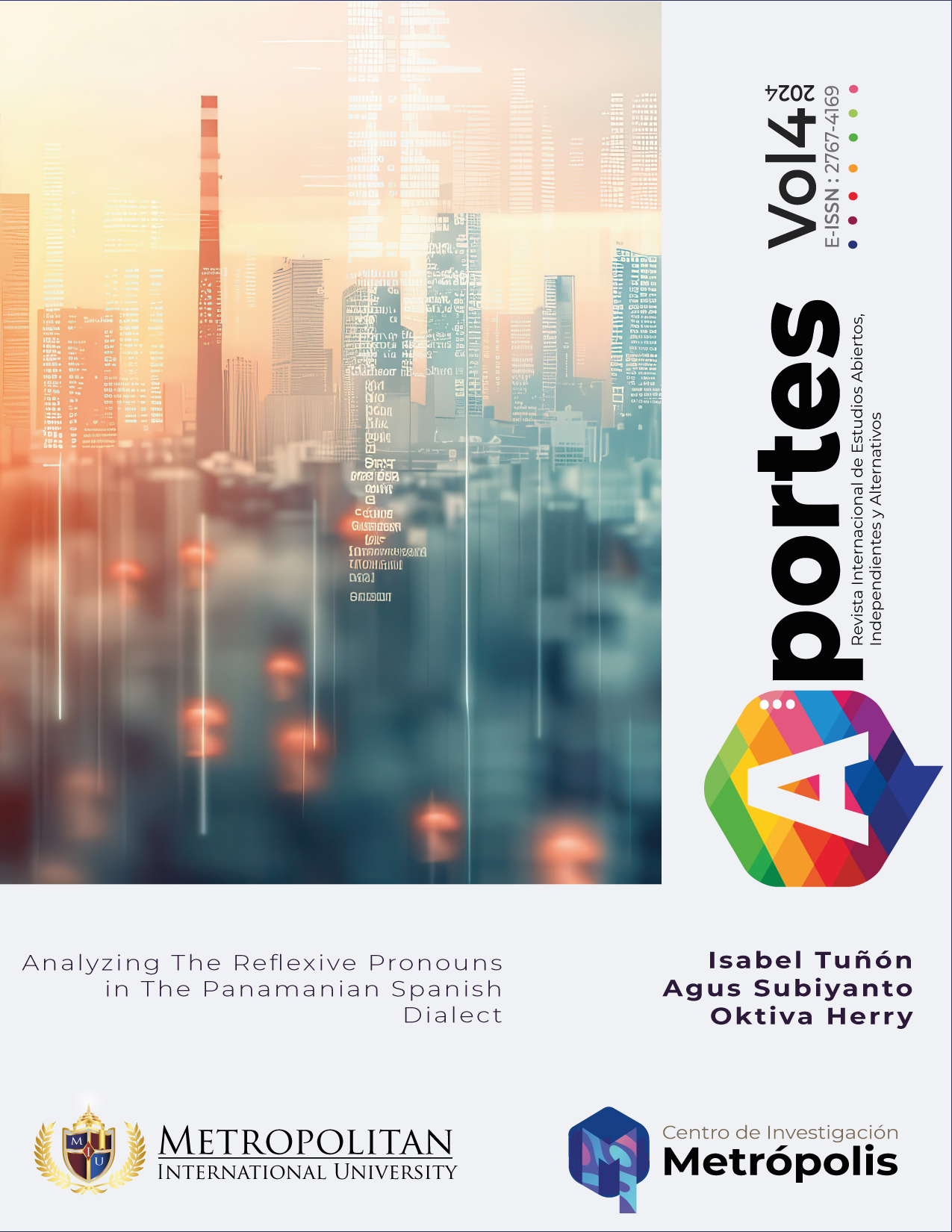Analyzing The Reflexive Pronouns in The Panamanian Spanish Dialect
A Lexical Functional Grammar Analysis.
Palabras clave:
Generative Grammar, Linguistics, Latin American Spanish, Pronouns, Reflexive ExpressionsResumen
Reflexivity in linguistics refers to the relationship between a subject and an object within a sentence, where the subject and object are the same entity. This phenomenon has significant implications in Romance languages like Spanish, as it can impact the meaning and structure of a sentence. This study aims to analyze the use of reflexive pronouns in the Panamanian Spanish dialect using a lexical functional grammar (LFG) approach. This research aims to observe and explain the morphosyntactical phenomena that firmly influence Panamanians' sentences of daily use and informal speech. The data for this study was collected through semi-structured interviews with six native Panamanians aged between 50 and 20 years. The interviews were used to learn first-hand the types of reflective sentences that ordinary Panamanian citizens usually use. These were analyzed using the LFG approach to understanding in-depth sentence structure, especially the verb structure. It was found that Panamanians often use the pronoun 'te' and reflexive pronouns in their speech, possibly to convey a sense of closeness and affection within their society. In addition, a duplication was found, yet this phenomenon is not fully understood. Still, it may be due to the interpersonal relationships that Panamanians and Latin Americans tend to cultivate.






